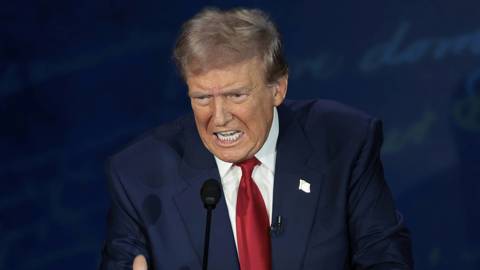Pranab Bardhan
Says More…
This week in Say More, PS talks with Pranab Bardhan, Distinguished Professor Emeritus at the University of California, Berkeley, and the author, most recently, of A World of Insecurity: Democratic Disenchantment in Rich and Poor Countries.
Project Syndicate: In February, you highlighted “the symbiotic relationship between business and political elites under [Indian] Prime Minister Narendra Modi,” the leader of the ruling Bharatiya Janata Party, arguing that rampant political favoritism is impeding India’s economic growth and development. Would the end of BJP rule be enough to bring about the demise of “India’s crony oligarchy,” or are structural reforms or other policy interventions also needed to boost competition? How might such efforts advance the goal of “generating sufficient productive employment” for India’s young people?
Pranab Bardhan: While India’s business-politics nexus has existed for many decades, corporate concentration and the dominance of some favored oligarchs have become more egregious under Modi. This has made the imperatives of structural reform and stronger competition policy much more pressing.
Compounding the urgency, India is now in the brief period in its demographic transition when large numbers of young people are entering the labor force. But good, productive jobs are scarce – a problem that the government exacerbates by supporting favored conglomerates in skill- and capital-intensive businesses in non-traded or protected/heavily-regulated sectors.
A better approach would focus on supporting smaller, often informal, enterprises, which have the potential to create the needed jobs. Credit, marketing facilities, infrastructure, and technical-extension services are imperative to make those jobs productive. Government efforts to foster skill formation among young people have also been rather half-hearted.
PS: Though China is now “experiencing a palpable – and expected – slowdown,” you recently argued, it is likely to remain a “major manufacturing and trading power for many decades.” What explains China’s economic resilience? Are President Xi Jinping’s efforts to strengthen that resilience – from deepening ties with Russia to attempting to reduce China’s reliance on the West – likely to succeed, or are they examples of “errors in judgment” stemming from the “lack of a strong civil society or independent judiciary”?
PB: The sources of China’s economic resilience have more to do with internal factors than external ones. China has a large domestic market and skill base, a relatively efficient bureaucracy, and world-class physical infrastructure. Moreover, its tech sector benefits from both direct government support and an abundance of available data. That said, Xi is an autocratic leader whose errors in judgment – exacerbated if not caused by repression of opposing views – will sorely test China’s economic resilience in the coming years.
PS: “For all its allure,” you wrote in 2017, “the Chinese development model is deficient in fundamental respects, and not easily reproducible elsewhere.” You expand on these deficiencies in your book, A World of Insecurity: Democratic Disenchantment in Rich and Poor Countries, in a chapter called “The Temptation of Authoritarianism.” But, while developing countries should not seek to replicate China’s development model, are there aspects of that model that are worth emulating or adapting?
PB: While few developing economies can benefit from scale on par with China’s, they should be working to replicate some of the aforementioned sources of resilience, such as strong infrastructure, a robust skills base, and a merit-based system for assessing bureaucratic performance. As I describe in my book, the Chinese system of economic decentralization also holds many lessons for other countries, particularly as they work to build up their infrastructure and support regionally competitive local-business development.
But China’s combination of political centralization and economic decentralization forms a unique system, rooted in China’s long imperial history. Countries should also recognize that Chinese-style authoritarianism is neither a necessary nor sufficient condition for development.

Introductory Offer: Save 30% on PS Digital
Access every new PS commentary, our entire On Point suite of subscriber-exclusive content – including Longer Reads, Insider Interviews, Big Picture/Big Question, and Say More – and the full PS archive.
BY THE WAY . . .
PS: In A World of Insecurity, you challenge arguments urging countries to embrace more bottom-up decision-making and community-based initiatives as a way to “take back control” from distant or faceless authorities. What is the proper role of the community – specifically, the “devolution of power to local community associations” – in a democracy, and what are some of the “political and economic pitfalls of the communitarian position”?
PB: As I note in my book, there are many examples of devolution leading to better decisions – from the point of view of efficiency, equity, and fitness to specific local conditions and challenges – in both rich and poor countries. But it is in projects that rely largely on the use of local information and initiative – for example, managing the local commons – that local communities excel. Devolution of power can also help ease social and political tensions and ensure local cultural and political autonomy.
But there are limits to local communities’ advantages. For many types of projects – from the construction of large irrigation systems to the development of school curricula – supra-local expertise and coordination are essential. Furthermore, local communities can be more vulnerable to “capture” by local oligarchs and vested interests – especially in contexts of high social and economic inequality – than central entities, which tend to be forced to balance the interests of more groups.
PS: In your book, you make the case for “rejuvenating” social democracy, “though with a great deal of modifications to its older forms,” and advocate the introduction of a universal basic income to bolster security in poor countries. What is the most compelling rationale for a UBI, and why must we avoid framing it as an “anti-poverty” intervention?
PB: In my book, I call for UBI mainly in poor countries, where a decent income supplement is fiscally feasible. (In rich countries, such a supplement may require a complete overhaul of the expensive welfare systems that already exist.)
In poor countries, vast numbers of marginalized workers – especially women – face tremendous economic uncertainty, from which a UBI can provide relief. I view a UBI as part of every citizen’s fundamental right to minimum economic security, which poor-country governments do not currently provide. Instead, these governments often pursue targeted “anti-poverty interventions,” which rely on a complex process of means testing to determine who qualifies for support. But means testing is particularly difficult in countries with a large informal sector, and the process is both costly and prone to corruption and mistakes, with both inclusion and exclusion errors proliferating.
A UBI avoids most of these pitfalls. Yes, the rich also receive the basic income allocation, and that costs the state money. But it is worth it to avoid exclusion errors, thereby guaranteeing the fundamental right to minimum economic security. It is much like the right to physical security: even if a business tycoon can afford their own personal guards, they still have a right to police protection.
PS: You have written a memoir in a series of weekly installments, with the full memoir set to be published this year. Why did you choose this share-as-you-go approach, and how did it affect the end result?
PB: My latest memoir was serialized in the blog 3 Quarks Daily for over a year, and a much-revised version – entitled Charaiveti: An Academic’s Global Journey – will be published by Harper Collins India later this year. The advantage of this approach was that I received feedback from readers from different walks of life, rather than only (or primarily) close academic colleagues. This gave me the opportunity continuously to revise and improve my work.
In fact, this is the second time I took this approach: a different version of my memoir, written in in my first language, Bengali, was serialized in a literary magazine in Kolkata, before being published as a book in 2014. But that memoir was written with a local readership in mind – for example, it included many references to local songs, movies, and literature – whereas Charaiveti is intended for a global readership. The references are thus familiar to an international audience.




